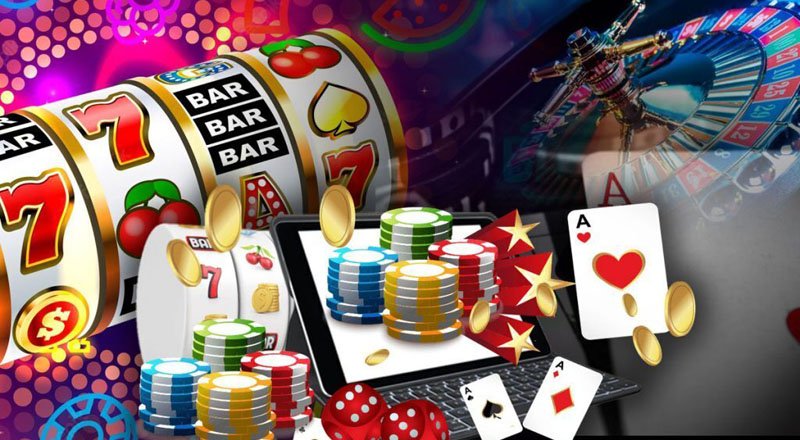
In the world of gambling, where chance and strategy meet, a unique tapestry of beliefs unfolds—one that intertwines luck, fate, and the enigmatic nature of casino games. Casinos, bustling with excitement and anticipation, are not just places for placing bets; they are also arenas in which superstitions thrive. From the novice player to the seasoned gambler, these mysterious practices often shape how individuals approach the games they play, believing that their actions can influence the outcome in ways that go beyond mere probability.
As players gather around roulette wheels, blackjack tables, and slot machines, the atmosphere is thick with stories of lucky charms, rituals, and codified behavior that defy logic yet provide a sense of comfort. Whether it’s wearing a specific outfit, following a particular sequence of bets, or even avoiding certain numbers, the attachment to various superstitions reflects a deep-rooted desire to manipulate the uncontrollable. This article delves into the captivating world of casino game superstitions, investigating the beliefs that simultaneously entertain and mystify those who dare to play.
Cultural Roots of Superstitions
Gambling games have long been connected with an host of superstitions that can be traced to ancient cultures. The roots of these beliefs can be linked to humanity’s innate need to influence the unpredictable outcomes connected with fortune and uncertainty. In early civilizations, activities of uncertainty were often connected to spiritual practices. Gamblers would call upon favor or ask for favor from spirits, believing that their actions could change the outcomes in their advantage. This foundation laid the foundation for the multitude of superstitions that developed as gambling evolved over ages.
During the medieval period, betting became a common hobby across Europe, and with it, a diverse tapestry of superstitions developed. Participants adopted different rituals and charms, believing they could influence the consequences of games. The significance of digits, in particular, started to manifest in superstitions around card games and dice. The number seven was often considered auspicious, while other numbers carried unfortunate connotations. These ideas mirrored the societal contexts of the time, adapting as they passed through generations and adapted to emerging gaming environments.
As gaming establishments appeared in the 17th century, particularly in the Italian peninsula and France, the atmosphere surrounding betting became imbued in mystique. The growing openness of gambling games allowed for the expansion and variation of superstitions among players. Concepts like charmed charms, special seating arrangements, and rituals gained importance, creating a unique culture within casinos. As these customs continued to thrive, they became integral to the essence of casino games, illustrating how historical developments and society shape the convictions that influence how gamblers connect with fortune.
Popular Casino Myths
Beliefs surrounding casino activities are plentiful and diverse, mirroring the hopes and fears of players as they engage in random games. One of the most prevalent beliefs is that certain digits bring fortune or misfortune. For example, the digit 7 is often seen as a favorable digit, frequently embraced by players looking for a favorable outcome. Conversely, the number thirteen is routinely considered cursed, leading many gamblers to avoid it during their gaming periods.
Another frequent belief relates to practices that players believe can influence their odds. It could be blowing on dice before a throw, using a particular gesture to place a bet, or even putting on particular items of attire, many individuals feel that these actions can sway luck in their favor. These rituals offer a feeling of power in an otherwise unpredictable environment, strengthening the idea that luck can be manufactured through individual convictions and habits.
Lastly, the environment and atmosphere of the casino itself adds to superstition. Many players suggest that the presence of certain symbols, such as four-leaf clovers or lucky coins, can enhance their chances of success. Additionally, gamblers might adhere to the belief that victory streaks can be halted by mundane occurrences, such as someone walking past or a accident at the table. The collective atmosphere in a casino can amplify these superstitions, creating a shared culture of myths that goes beyond individual experiences.
Impact of Superstitions on Players
Beliefs play a significant role in the mindset of gamblers, often affecting their actions and decision-making. A lot of gamblers think that luck can be manipulated through different rituals, such as wearing a lucky charm, selecting specific colors, or steering clear of particular digits. This reliance on superstitions can create a feeling of control in an environment that is inherently unpredictable. Players often feel more self-assured and involved when they believe that their actions could sway the result of a game in their advantage.
The influence of these superstitions extends past individual players, affecting the general atmosphere inside the casino. For instance, a player who holds the belief in the luck of a certain slot machine might draw a crowd, as others are fascinated by their apparent luck. This collective belief can heighten excitement and create a dynamic environment, leading to an interesting experience even for those who may not necessarily be believers themselves. The excitement around specific games can lead to increased participation and longer playing sessions, supporting the casino’s vibrant social scene.
In some cases, superstitions can lead to negative effects for players. Depending too heavily on rituals can result in poor gambling decisions, as some may ignore basic strategies in favor of unfounded beliefs. Additionally, the pressure to perform rituals may increase anxiety and stress levels, detracting from the enjoyment of the experience. nohu90 Ultimately, while superstitions can enhance the excitement of playing casino games, they can also lead to foolish choices that overshadow the enjoyment and amusement intended in the casino experience.